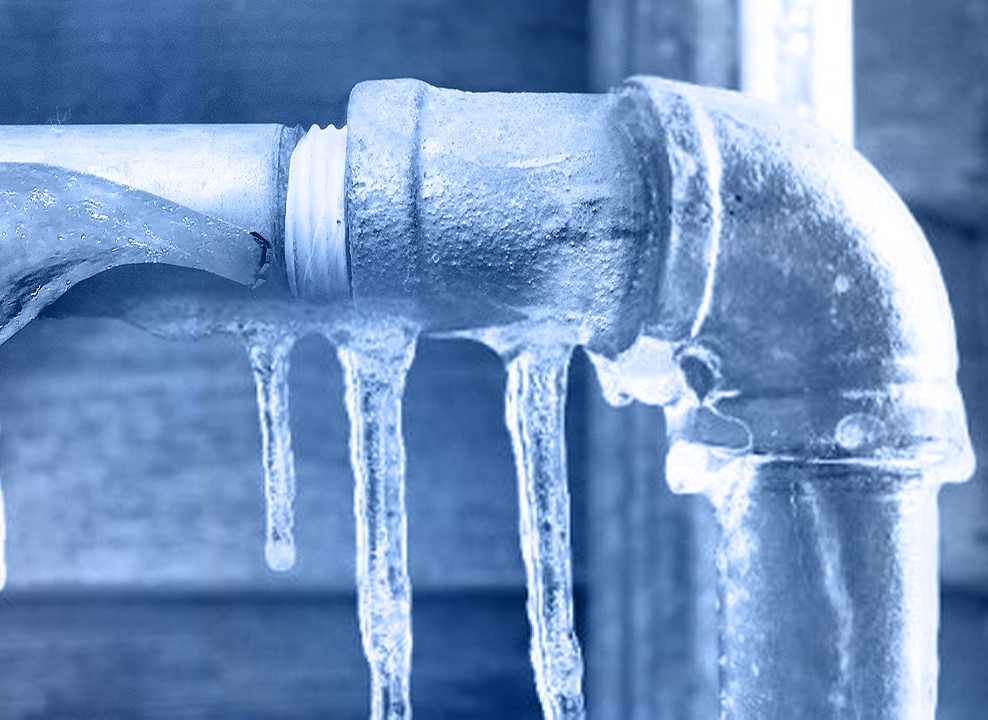Crucial Tips for Preventing Frozen Plumbing in Winter Conditions
Crucial Tips for Preventing Frozen Plumbing in Winter Conditions
Blog Article
This great article following next involving How to prepare your home plumbing for winter weather is absolutely remarkable. Check it out for your own benefit and decide what you think of it.

Winter can ruin your plumbing, specifically by freezing pipes. Below's exactly how to stop it from taking place and what to do if it does.
Intro
As temperature levels decline, the risk of frozen pipes rises, possibly bring about pricey fixings and water damage. Understanding just how to avoid frozen pipelines is vital for property owners in cold environments.
Understanding Icy Pipes
What creates pipes to ice up?
Pipes ice up when exposed to temperature levels listed below 32 ° F (0 ° C) for prolonged durations. As water inside the pipes freezes, it increases, putting pressure on the pipeline wall surfaces and potentially triggering them to break.
Dangers and damages
Frozen pipelines can result in water interruptions, residential property damages, and costly repairs. Ruptured pipelines can flooding homes and trigger substantial structural damage.
Indications of Frozen Pipeline
Identifying frozen pipelines early can avoid them from bursting.
Just how to identify frozen pipes
Try to find reduced water flow from faucets, uncommon odors or noises from pipelines, and noticeable frost on exposed pipes.
Prevention Tips
Shielding vulnerable pipes
Cover pipelines in insulation sleeves or utilize warm tape to protect them from freezing temperature levels. Concentrate on pipelines in unheated or outside locations of the home.
Heating techniques
Maintain indoor rooms appropriately warmed, particularly areas with pipes. Open up cupboard doors to allow cozy air to distribute around pipes under sinks.
Protecting Outside Plumbing
Yard hose pipes and exterior taps
Disconnect and drain pipes yard hose pipes prior to winter months. Install frost-proof faucets or cover exterior taps with shielded caps.
What to Do If Your Pipes Freeze
Immediate actions to take
If you believe icy pipelines, maintain faucets open up to ease stress as the ice thaws. Make use of a hairdryer or towels taken in warm water to thaw pipes gradually.
Long-Term Solutions
Structural adjustments
Think about rerouting pipes away from outside wall surfaces or unheated areas. Include added insulation to attics, cellars, and crawl spaces.
Upgrading insulation
Invest in premium insulation for pipes, attic rooms, and walls. Correct insulation assists maintain regular temperatures and lowers the danger of icy pipes.
Final thought
Preventing icy pipes calls for positive steps and fast actions. By recognizing the reasons, indications, and safety nets, house owners can shield their pipes throughout winter.
Helpful Tips to Prevent Frozen Pipes this Winter
UNDERSTANDING THE BASICS: WHY PIPES FREEZE AND WHY IT’S A PROBLEM
Water freezing inside pipes is common during the winter months, but understanding why pipes freeze, and the potential problems it can cause is crucial in preventing such incidents. This section will delve into the basics of why pipes freeze and the associated problems that may arise.
THE SCIENCE BEHIND FROZEN PIPES
When water reaches freezing temperatures, it undergoes a physical transformation and solidifies into ice. This expansion of water as it freezes is the primary reason pipes can burst. As the water inside the pipe freezes, it expands, creating immense pressure on the walls. If the pressure becomes too great, the pipe can crack or rupture, leading to leaks and water damage.
FACTORS THAT CONTRIBUTE TO PIPE FREEZING
Low Temperatures: Extremely cold weather, especially below freezing, increases the risk of pipes freezing. Uninsulated or Poorly Insulated Pipes: Pipes located in unheated areas, such as basements, crawl spaces, or attics, are more prone to freezing. Insufficient insulation or lack of insulation altogether exacerbates the problem. Exterior Wall Exposure: Pipes running along exterior walls are susceptible to freezing as they encounter colder temperatures outside. Lack of Heating or Temperature Regulation: Inadequate heating or inconsistent temperature control in your home can contribute to frozen pipes. PROBLEMS CAUSED BY FROZEN PIPES
- Pipe Bursting: As mentioned earlier, the expansion of water as it freezes can cause pipes to burst, resulting in significant water damage.
- Water Damage: When pipes burst, it can lead to flooding and water damage to your property, including walls, ceilings, flooring, and personal belongings.
- Structural Damage: Prolonged exposure to water from burst pipes can compromise the structural integrity of your home, leading to costly repairs.
- Mold and Mildew Growth: Excess moisture from water damage can create a favorable environment for mold and mildew growth, posing health risks to occupants.
- Disrupted Water Supply: Frozen pipes can also result in a complete or partial loss of water supply until the issue is resolved.
WHY CERTAIN PIPES ARE MORE PRONE TO FREEZING
- Location: Pipes located in unheated or poorly insulated areas, such as basements, crawl spaces, attics, or exterior walls, are at higher risk of freezing.
- Exterior Pipes: Outdoor pipes, such as those used for irrigation or exposed plumbing, are particularly vulnerable to freezing as they are directly exposed to the elements.
- Supply Lines: Pipes that carry water from the main water supply into your home, including the main water line, are critical to protect as freezing in these lines can affect your entire plumbing system.
- Underground Pipes: Pipes buried underground, such as those connected to sprinkler systems or outdoor faucets, can be susceptible to freezing if not properly insulated.
https://busybusy.com/blog/helpful-tips-to-prevent-frozen-pipes-this-winter/

We hope you enjoyed our article about Helpful Tips to Prevent Frozen Pipes this Winter. Thank you so much for taking time to browse our article. If you liked our blog post please do not forget to share it. We love reading our article about Preventing and dealing with frozen pipes.
Recurring Service Plans Report this page